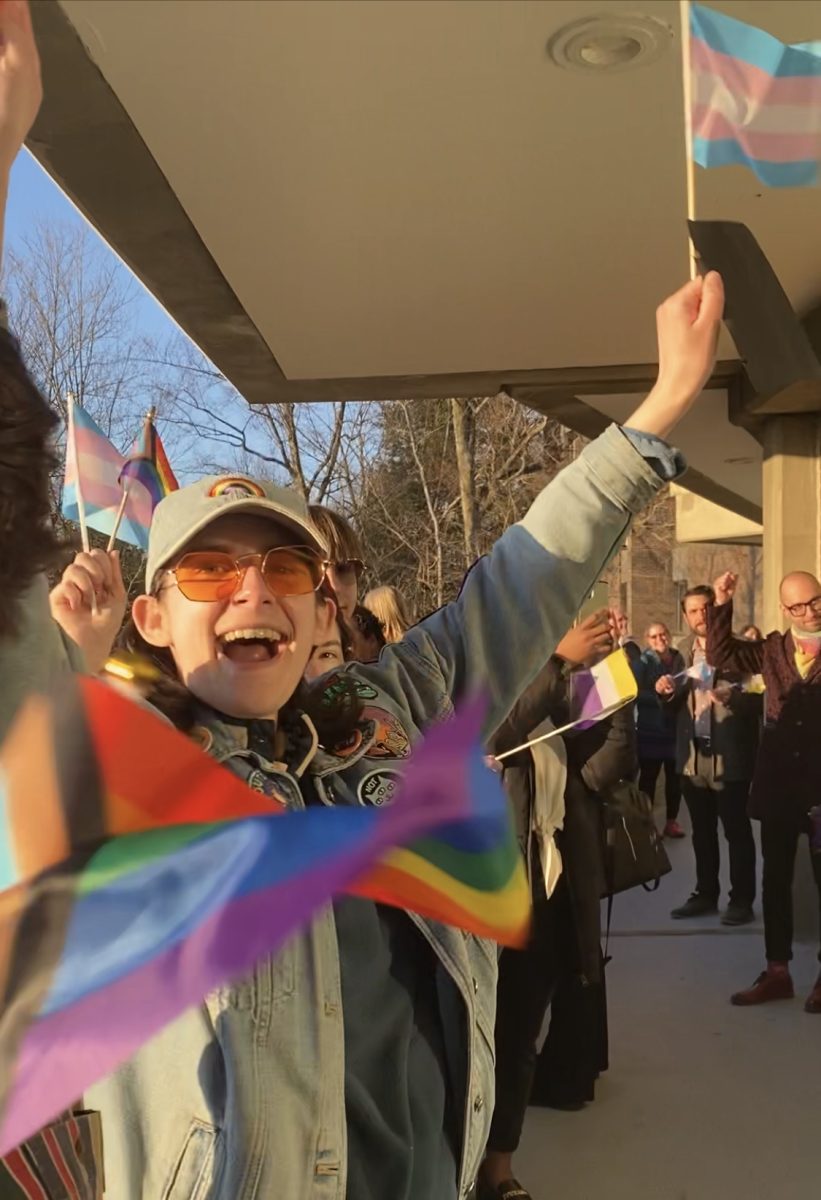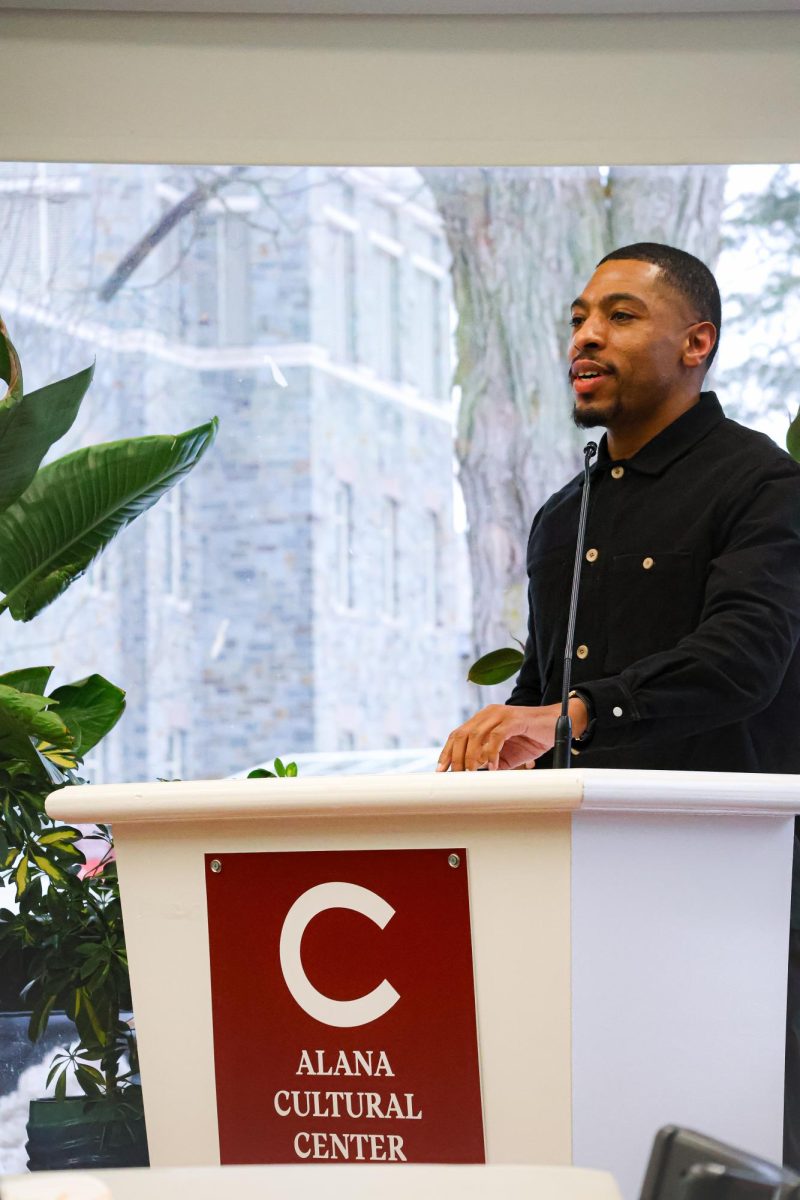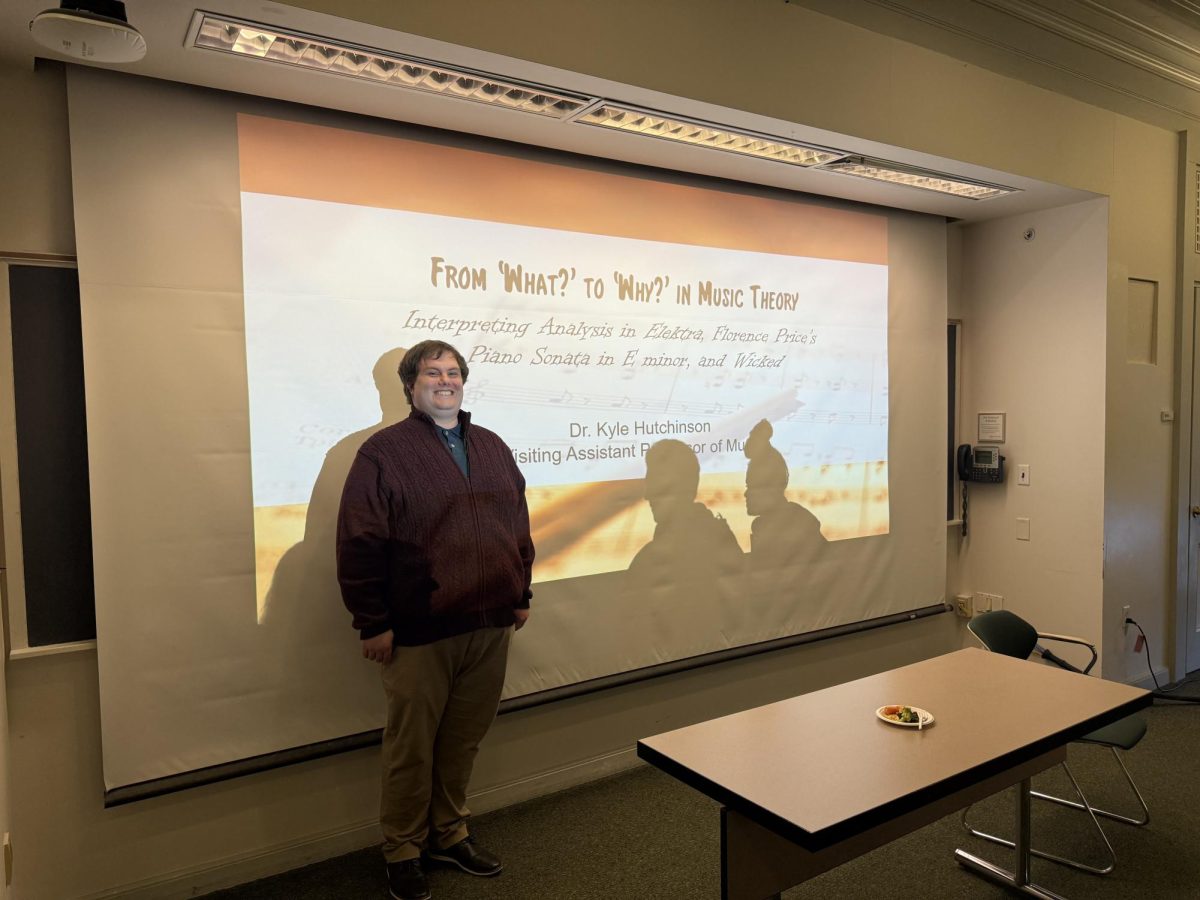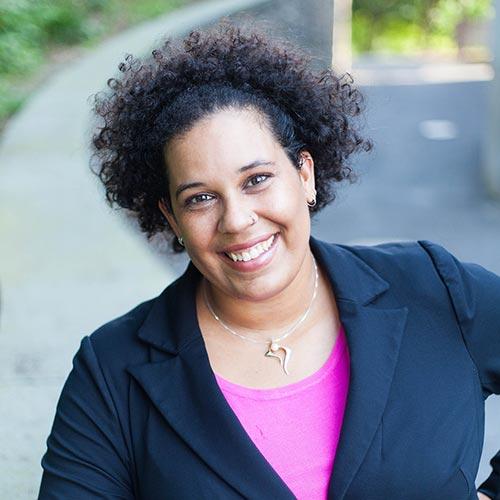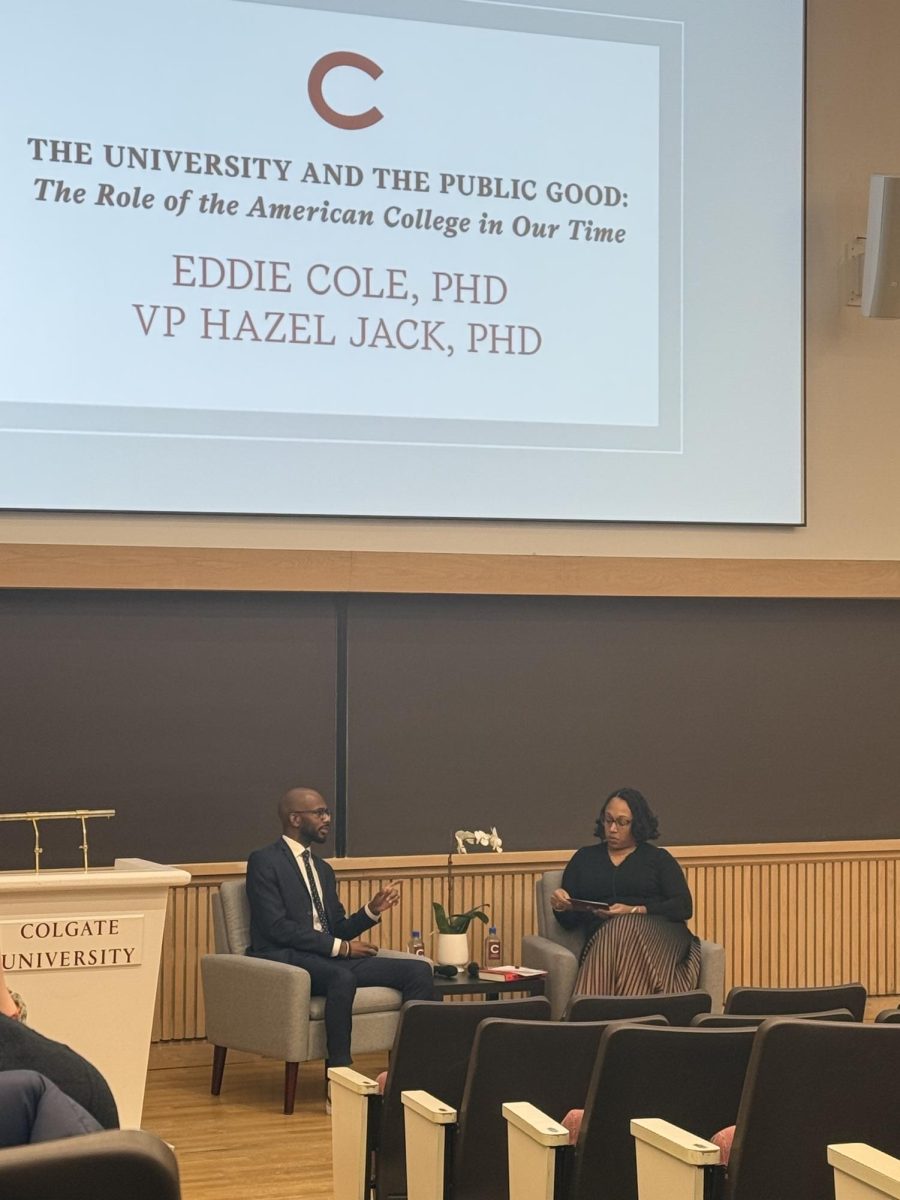Editorial Correction: This article previously stated that Professor Scott’s talk was organized by the Office of LGBTQ+ Initiatives as a part of the Queerfest event series. While the talk did occur during Queerfest, the event was organized by the LGBTQ studies program and was co-sponsored by the Office of LGBTQ+ Initiatives.
The Colgate Maroon-News Editorial Board has changed the text of this article to reflect the proper facts of the story and apologizes for the initial misattribution.
The Office of LGBTQ+ Initiatives hosted Queerfest, an event series, the week of March 25 to celebrate queer voices and spaces on campus. The week included an educational talk titled “You Matter: Addressing and Improving Queer Healthcare” and a pride march on March 27. Another event during the week included a lecture organized by the LGBTQ studies program titled “Negotiating Powerfulness: Femininity in Feminist Queer Spaces” on March 28. The guest lecturer was Bucknell University professor and Director of Equity and Inclusion Excellence Jocelyne Scott, who discussed many aspects of femininity and how it intersects with topics such as feminism, sexism and sexuality discussions.
The talk covered a variety of topics, all focused on the main idea of femininity. Scott touched upon ideas of feminism, powerfulness and how those ideas are tied to femininity. She further focused on femmephobia, a concept centered around the othering of feminine-presenting lesbians and how navigating spaces as a feminine-presenting lesbian is different due to inherent stereotypes and biases.
Junior Catalina King discussed how she did not know what to expect going into the discussion and left with an enhanced understanding of the complexities of femininity.
“What I really got out of the talk was the different ways the idea of femininity can be constructed and viewed within society and within yourself. Femininity is a very personal thing, and how you choose to express it, if at all, should be completely up to you,” King said. “Femininity is something that is so highly monitored and judged within society, and the balance of having both femininity and respect in certain spaces is an incredibly difficult balance.”
One of the major points of discussion was the “Elle Woods effect,” named after the main character in the film “Legally Blonde.” The event discussed the character’s dual status as both a feminist icon of sorts and someone who could perpetuate sexist ideals. This allowed Scott to further discuss the portrayal of femininity in popularized media and how it is seen either as a form of strength or weakness.
“I was expecting it to be really clear cut. I was expecting people to say, ‘This Elle Woods, she’s a troublesome character, she’s everything wrong with sororities,’ and that the problem is that we have to come up against these popular culture representations. But that’s not totally what I found,” Scott said. “People described her in really disparate ways, in ways that totally conflicted with each other.”
Junior and women’s studies major Aryanna Rebolloso discussed how the talk opened her eyes to looking at femininity in media through a more critical lens.
“I found the topic of the ‘Elle Woods effect’ really captivating. It’s always interesting to think more critically about media that you consumed when you were younger with a different perspective because you really realize a lot of things you didn’t catch the first time,” Rebolloso said. “To some people, Elle served as an encapsulation of sexist tropes, being ditzy [and] unserious, […] but to others, she was a sort of feminist icon. I think it’s so interesting how people can take one character or one idea and get completely different things out of it.”
Scott further used Elle Woods as a lens through which to view the intersection between sorority women and femininity. As a member of a sorority and a feminine-presenting queer woman, Scott found that she had many conversations about her identity and discussed how sorority women are portrayed in media and how they often serve as a way to portray one specific type of femininity as the mainstream.
“I found the points about sorority women especially impactful,” Rebolloso said. “I think that people’s perceptions of what a sorority woman should do or how they should present is shockingly narrow.”
Scott then discussed symbols of femininity and power, namely the high heel that serves as a quintessential image for both. She pointed to how, in order to have the power and femininity that come with the high heel, one must sacrifice one’s own comfort in order to be perceived as both feminine and powerful. Femininity and power are not gained without the loss of something else, and often feminine characteristics that are praised as “powerful” are simply masculine characteristics put onto a female body.
“This paradox — the way one becomes powerless to the experience of wearing high heels while wielding the power of wearing them — illustrates that the powerfulness of femininity does not exist without powerlessness,” Scott said.
King described how much this point resonated with her.
“I thought the image she used of a high heel was really effective in portraying her message. You don’t realize all the things you have to do in order to be perceived as both a confident, powerful woman and someone with a strong sense of her own femininity,” King said.
Scott further went on to discuss how certain phrases and speech patterns that are deemed feminine are also tied to unintelligence or weakness, while male phrases are not. She detailed one instance in which she was instructed to edit the “likes” out of a transcript to make the speech sound more credible.
“I was told I should edit out the ‘likes’ to make it more readable. In particular, to make her contributions more obvious, and to get the point across and to make her seem smarter,” Scott said. “I think that’s really noteworthy to think about how gendered fillers like ‘like’ are so associated with intelligence or competence, and we don’t really have that same association with other types of filler words.”
Scott discussed the stereotypes within the lesbian community on what kind of appearance deems someone a lesbian. She described times during her life when she was rejected from certain spaces on account of “looking straight,” which typically meant looking too feminine.
“It’s unfortunate that society’s perception of femininity prevents certain people from entering certain spaces and acting a certain way. It should be something liberating and personal, but society is often very constrictive in what they view as ‘feminine,’ especially in regards to queer spaces,” Rebolloso said.
Additional Queerfest events this year included a silent disco, a poetry reading, professional headshots and drag bingo.


